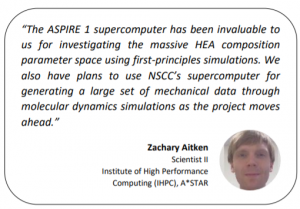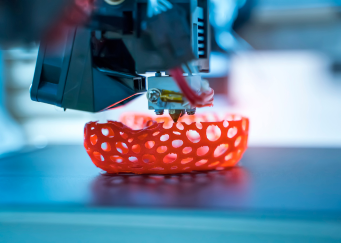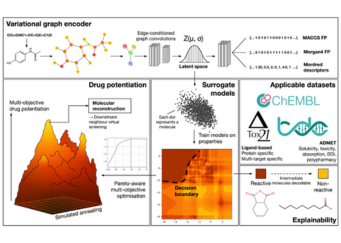NSCC’s supercomputer helps perform high-throughput computations to accelerate the process of alloy development and to make it more cost effective.
Traditional pathways in the development of new alloys often occur through several empirical observations and optimising the composition and fabrication methodology. Such conventional methods may take up to 20 years of work before the alloy is ready for deployment.
A team of researchers at the Institute of High Performance Computing (IHPC), A*STAR are leveraging NSCC’s supercomputing resources to perform high-throughput computations and experiments coupled with machine learning techniques. This helps accelerate the process of alloy development to just 3 years in the case of fabricating a novel high entropy alloy (HEA).

To achieve this, IHPC is leveraging various domain expertise that covers first-principles simulations, molecular dynamics, and computational thermodynamics to generate a database that is used to train the machine learning model. Such a database holds a huge amount of data and requires large-scale, highperformance computing resources to analyse.
By using NSCC’s resources, the team has been able to generate more than 1 million data points that have been used to train machine learning models that predict the microstructural phase of an HEA for a given composition.
To find out more about the NSCC’s HPC resources and how you can tap on them, please contact [email protected].
NSCC NewsBytes April 2021
Other Case Studies
Using Digital Twin Technology to Optimise the Industrial 3D Printing Process
Researchers from the Institute of High-Performance Computing (IHPC) are utilizing supercomputers to create a digital twin that furnishes users with comprehensive information...
Accelerating electric vehicles research through HPC
Researchers from A*STAR IHPC leverage supercomputing resources to improve the performance of lithium-ion battery technology With the ever-increasing demand in energy storage...
Advancing Drug Discovery Research using NSCC HPC resources
Researchers from Nanyang Technological University (NTU) are applying variational graph encoders as an effective generalist algorithm in computer-aided drug design (CADD)....


